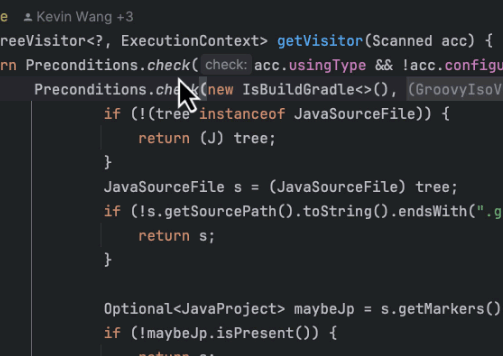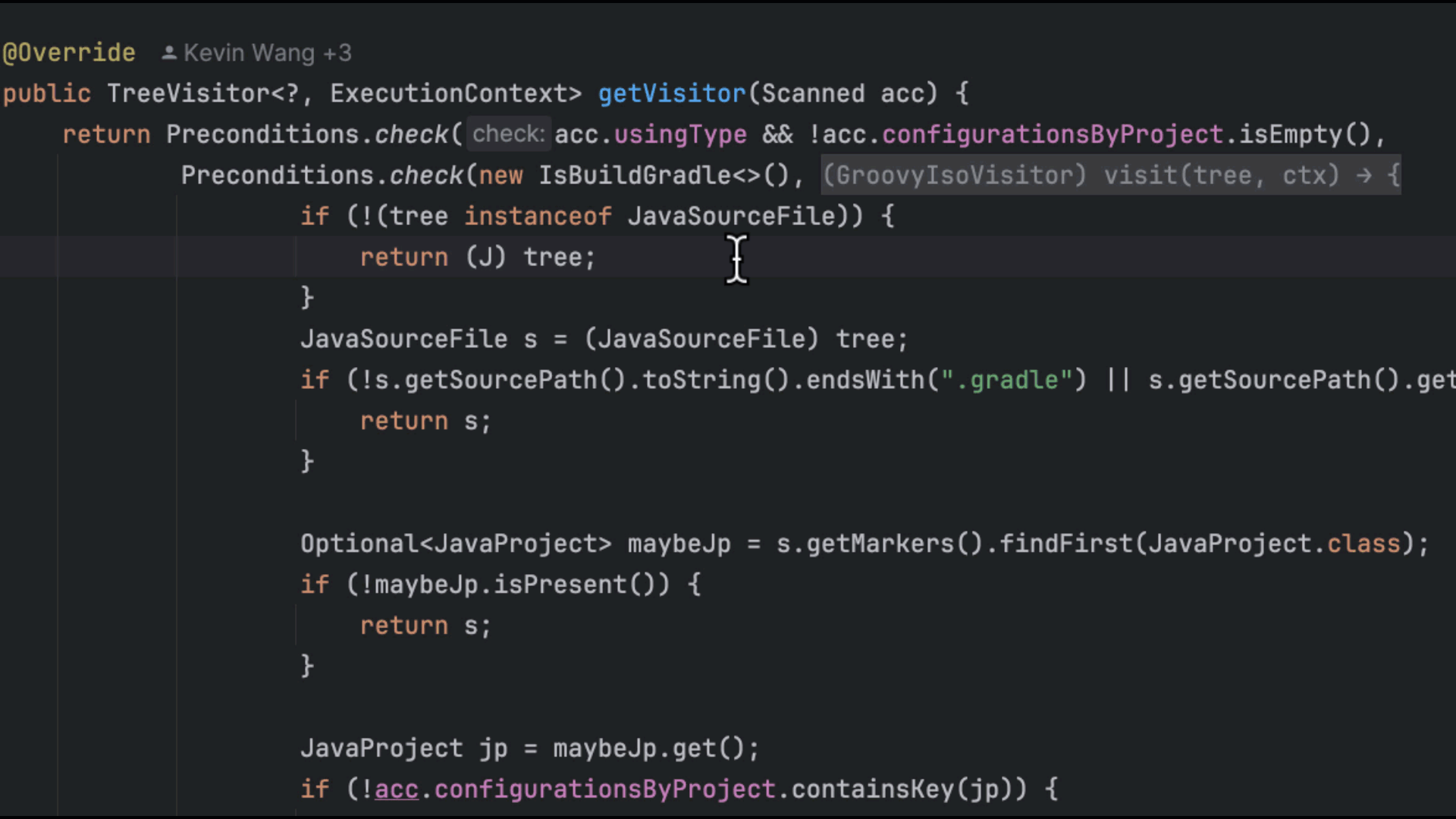How to create recipes
When planning large-scale code changes, it's a good idea to begin by creating a recipe that identifies all of the potential edit sites. Doing so gives you a full impact analysis of what you're about to do, before you actually do it. Taking the time to find all of these locations is especially important because real-world code is complex and nuanced. Without a proper accounting of this nuance, writing a transformation recipe will not be as accurate as you'd wish.
The Moderne plugin helps simplify this process by providing you with an easy way to create a search recipe for any piece of your code.
In this short guide, we'll walk through everything you need to know to get started with recipe creation using the Moderne plugin.
Ways to create recipes
To begin, find some API that you're interested in searching for. Then right-click on one of its usages and either:
- Click on
Find Usages on All Reposand then click onCreate Recipe(selecting the type of recipe that you want to create). This will create a search recipe based on the API you specified.

- Click on
Refactor, selectCreate OpenRewrite Recipe..., and then click onCreate Recipe(selecting the type of recipe you want to create). This will create a refactor recipe based on the API you specified. Please note that IntelliJ IDEA offers a keyboard shortcut for theCreate OpenRewrite Recipe...menu (it defaults to alt + command + 9 on a Mac).

Types of recipes you can create
The Moderne plugin allows you to create two types of recipes: Refaster recipes and Imperative visitor-based recipes.
Refaster recipes are better if you're doing a straightforward replacement (such as converting StringUtils.equals(..) to Objects.equals(..)). For everything else, you should create an Imperative recipe.
Refaster recipe example
package org.openrewrite.gradle;
import org.openrewrite.TreeVisitor;
import org.openrewrite.Preconditions;
import com.google.errorprone.refaster.annotation.AfterTemplate;
import com.google.errorprone.refaster.annotation.BeforeTemplate;
import org.openrewrite.java.template.RecipeDescriptor;
@RecipeDescriptor(
name = "My recipe name",
description = "A full sentence description."
)
class MyRecipe9 {
@BeforeTemplate
TreeVisitor before(Preconditions p, boolean check, TreeVisitor v) {
return p.check(check, v);
}
@AfterTemplate
TreeVisitor after(Preconditions p, boolean check, TreeVisitor v) {
// TODO what do you want it to be after?
return null;
}
}
Visitor recipe example
package org.openrewrite.gradle;
import org.openrewrite.ExecutionContext;
import org.openrewrite.Preconditions;
import org.openrewrite.Recipe;
import org.openrewrite.TreeVisitor;
import org.openrewrite.internal.lang.NonNullApi;
import org.openrewrite.java.JavaIsoVisitor;
import org.openrewrite.java.MethodMatcher;
import org.openrewrite.java.search.UsesMethod;
import org.openrewrite.java.tree.J;
import org.openrewrite.marker.SearchResult;
@NonNullApi
class MyRecipe10 extends Recipe {
@Override
public String getDisplayName() {
return "My recipe";
}
@Override
public String getDescription() {
return "This is a description of what the recipe does.";
}
@Override
public TreeVisitor<?, ExecutionContext> getVisitor() {
MethodMatcher matcher = new MethodMatcher("org.openrewrite.Preconditions#check(boolean,org.openrewrite.TreeVisitor)");
return Preconditions.check(new UsesMethod<>(matcher), new JavaIsoVisitor<>() {
@Override
public J.MethodInvocation visitMethodInvocation(J.MethodInvocation method, ExecutionContext ctx) {
if (matcher.matches(method)) {
// TODO do something other than just mark the method as found?
return SearchResult.found(method);
}
return super.visitMethodInvocation(method, ctx);
}
});
}
}
For more information on recipe development, check out the OpenRewrite authoring recipes docs.